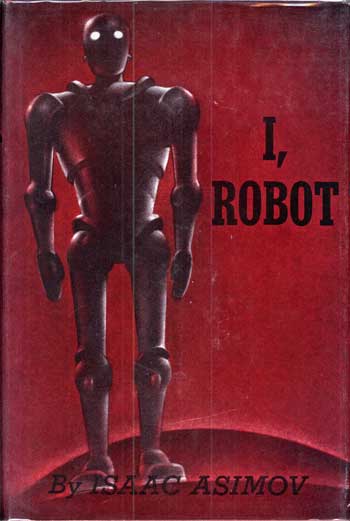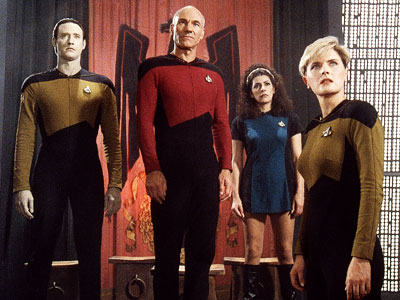By Kayla Ritchie
Down and Out? Try a Tylenol.
We’ve all experienced the distinct effects of a nice analgesic, whether it  was amidst a debilitating rhinovirus, or after one of those over-did-it workouts: the ease of movement, the decrease in physical stress, and most importantly the shift of focus from your pain to reality. We should all be thrilled then, to learn that on top of reducing physical symptoms of pain, drugs normally taken to alleviate minor aches and pains could actually work to reduce the emotional twinge of social rejection, according to recent research.
was amidst a debilitating rhinovirus, or after one of those over-did-it workouts: the ease of movement, the decrease in physical stress, and most importantly the shift of focus from your pain to reality. We should all be thrilled then, to learn that on top of reducing physical symptoms of pain, drugs normally taken to alleviate minor aches and pains could actually work to reduce the emotional twinge of social rejection, according to recent research.
The study, powered by C. Nathan DeWall of the University of Kentucky, gave volunteers either acetaminophen or placebo, and then subjected them to a game of virtual ball-toss. Over time, subjects were gradually rejected from the game. Those who had been given the analgesic demonstrated signs that they experienced fewer feelings of rejection, as was inferred through brain imaging of the anterior cingulate cortex, an area associated with feelings of emotional pain and desperation.
DeWall and his colleagues also demonstrated the effects of acetaminophen on a person’s moral judgment. When confronted with typical ethical quandaries, such as whether or not it’s right to sacrifice one person to ensure the safety of others, subjects showed less hesitancy in declaring their moral choice.
Though these researchers are quick to point out that no one should expect to correct their emotional problems with such a common drug, I think it’s important to realize just how effective a small chemical push towards recovering from a refusal could be. So often, when met with defeat or failure, it’s our natural reaction to dwell on our lack of fortune, to lose confidence or determination, or simply to become angry and resentful. In a world where there’s a constant competition for success, our failings become exaggerated, and our emotional anguish increases. As more and more Americans (over 27 million) elect to take strong psychotropic prescription antidepressants, it’s comforting to think that a slight mood improvement can be afforded through more mild drugs like Tylenol. Of course, acetaminophen has its own dangers, and causes liver failure if abused. Still, whether one is applying to graduate schools and jobs, or asking someone out on a date, a little Tylenol couldn’t hurt.
Social Analgesics– Gary Stix
I, Rudimentary Intelligence
Recent reports of artificial life forms which have "evolved" a basic form of intelligence have caused quite a stir in the biological and computer science communities.
This would normally be the time when I remind everyone that closer scrutiny must be paid to just what is meant by "life", "evolve" and "intelligence". But while those are all fascinating philosophical questions, there is no way in which a modest little blog post could begin to cover those topics. 
Instead, I'd like to draw attention to a particular aspect of Isaac Asimov's writing, of which I can't help being reminded after reading these reports. As the father of the term "robotics" and all things relating to it, Asimov dealt with nearly all of the issues relating to artificial intelligence. A few of his fictional robot characters even developed human-like, self-aware consciousness and creativity. But the one thing which stands out about these characters was that their consciousness was rarely a design of their creators, but rather a fluke. Minute variations in the mechanized construction of their positronic brains amounted to unique, creative minds.
Asimov's choice to author conscious robots as results of random chance forces us to think about how human consciousness evolved in reality. It may be that such a consciousness is not strictly required for an organism to dramatically enhance its chances of survival and reproduction. We seem to assume that our superior cognitive abilities grant us an enormous advantage over other species, that the sort of consciousness which makes us self-aware, reflective and creative was the "end result" in a very long line of brain development. But evolution does not work towards such a specific end. There are plenty of other species (e.g. viruses) that persist with just as much vigor as us, despite their lack of cognitive powers associated with the forebrain. Perhaps only a minor, random mutation resulted in a dramatic and permanent change in the brain, a change which ultimately amounted to consciousness. Who knows what the odds are that such an intelligence evolved, or will evolve again in a computer simulation? At least we can be reassured that, on a long enough time scale, even the most unlikely event can occur.
In any case, Boston University's own Isaac Asimov has made many a prediction with his science fiction, and many more can be expected.
"Artificial life forms evolve basic intelligence"-Catherine Brahic
Who is John Galt? Obviously, Not a Neuroscientist.
Capitalism gained a solid foundation in the 19th and 20th centuries due to the development of several philosophies of human nature, all of which proposed a rational, self-sufficient individual to be the most important element in any  society. One author in particular, the famously arrogant Ayn Rand, who once said “emotions are not tools of cognition” advanced the idea that humans have direct contact with reality through sensory perception, and thus could inductively and deductively produce logical concepts of the world which exactly reflected the nature of reality. This idea, combined with the assumption that humans have free-will, led Rand and others to the conclusion that the individual’s rational pursuit of survival, property and happiness was an inalienable right, and thus laissez faire capitalism remained the only moral political system.
society. One author in particular, the famously arrogant Ayn Rand, who once said “emotions are not tools of cognition” advanced the idea that humans have direct contact with reality through sensory perception, and thus could inductively and deductively produce logical concepts of the world which exactly reflected the nature of reality. This idea, combined with the assumption that humans have free-will, led Rand and others to the conclusion that the individual’s rational pursuit of survival, property and happiness was an inalienable right, and thus laissez faire capitalism remained the only moral political system.
This was all nice and fine for a society that knew next to nothing about human psychology and brain physiology. But much of the data gathered since suggests that humans are irrational, lack an ability to directly perceive their environment through sensory perception, and use emotions as their guides in nearly all decision making.
As an example of human irrationality, consider the Ultimatum Game, in which one subject is given an amount of money, say $10, and told to give any amount of this to a second subject. Both subjects are informed that if the receiving subject refuses to accept the offered amount, neither subject gets to keep any money at all.
The receiving subjects tend to reject stingy offers, preferring an outcome which actually grants them less money than they would have received if they had simply swallowed their pride and accepted the puny sum.
Further evidence for human irrationality can be seen in a study which asked its subjects to select a bar of soap to purchase among several different types. Subjects invariably justified their choice of one particular bar of soap, referencing its superior scent, sanitization capacity, and low price. Video records of the subjects revealed that they persistently caressed the smooth, ovular shape of the “superior” soap bar. The same soap’s popularity plummeted when it was presented in a rectangular shape.
Indeed, it appears that as humans we are often unknowingly overwhelmed by our whims and irrational urges. What, then, does this mean for capitalism?
If anything, it’s safe to say that as pursuers of happiness, we humans are at risk for making irrational decisions and conclusions about what will make us happy. We hoard electronic gadgets, eat sugary foods, and cram our brains full of reality TV and advertisements, all with the idea that these things bring us comfort and fulfillment. Our cities expand, our consumption of natural resources escalates, and our waste accumulates, everywhere. Still, we act surprised when we discover the rising rates of ADD, obesity and depression, and we somehow overlook the fact that our existence will be endangered upon the depletion of our finite resources.
Through adherence to a laissez-faire economic system, our inability to be consistently rational jeopardizes our survival. Hopefully, the influence of neuroscience and psychology will extend over the realm of politics and economics in time to save us from ourselves.
The development of interpersonal strategy:
Autism, theory-of-mind, cooperation and fairness -D. Sally, E. Hill
Messages and Myth - Dan P. Millar
For the New Intellectual - Ayn Rand
One Giant Leap for Mankind…in the Wrong Direction
On June 3rd, six volunteers were locked inside a mock space capsule to endure a 17 month simulation of a mission to Mars, called the Mars500. This will be the longest of these types of trials; during the simulation, an all-male crew is expected to perform operations required to complete a round-trip Mars mission. In addition, they must maintain relative physical and mental health in an isolate, confined environment. Scientists hope to gain perspective on the psychological stresses and effects an actual long-term space mission would have on its crew.
simulation of a mission to Mars, called the Mars500. This will be the longest of these types of trials; during the simulation, an all-male crew is expected to perform operations required to complete a round-trip Mars mission. In addition, they must maintain relative physical and mental health in an isolate, confined environment. Scientists hope to gain perspective on the psychological stresses and effects an actual long-term space mission would have on its crew.
While such a lengthy test will provide useful data to psychologists and space scientists alike, it also seems to be a preliminary gesture towards a future of deep-space travel that is dominated entirely by men.
Women were excluded due to “tension between the sexes.”An organizer of the simulation alluded to to a previous co-ed experiment, in which a Russian volunteer attempted to kiss his female associate at a New Year’s Eve party. As a result, a highly qualified, female cosmonaut was not allowed to participate in the experiment.
Similar fears of inappropriate sexual interaction have been used to prevent women from accompanying their male counterparts in other situations for generations. Women have been considered a distracting element, to the point that even their presence jeopardizes the success of a particular endeavor.
An all-woman crew was considered to be unfeasible due to the fact that, according to the organizers, out of 5,600 applicants only one woman was qualified for the job. Though, considering that the discrimination was brought about through the actions of a man, it is a wonder that men aren’t considered unfit for such experiments due to their disqualifying inability to contain their sexual impulses. Ideally, though, one should hope that equal opportunity be given to members of both genders.
This segregation will deprive scientists of any further data on co-ed experiments of this type, thus rendering future real life co-ed missions improbable, if not altogether impossible.
I can’t help but be reminded of the hackneyed but somehow lovable way in which Star Trek: The Next Generation made commentary on social issues, in this case through the introduction of a greedy, swindling, misogynistic race called the Ferengi, who are shocked to learn that members of Starfleet work alongside their females.
Indeed, in the context of many Utopian science fiction tales, the future human race is often portrayed as one that has reached some type of social maturity, and has out-grown its former preoccupation with delineating differences between gender, race, nationality or religion. It is unfortunate that, at present, our rate of technological growth far surpasses that of our social progress.
SOURCE:
http://blogs.discovermagazine.com/80beats/2010/06/03/see-you-in-520-days-pretend-astronauts-begin-simulated-trip-to-mars/